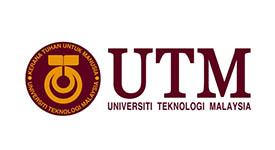
Start Chat with a Counsellor

| Study Mode | FULL TIME | ||||
| Level | UNDER-GRADUATE | ||||
| Duration | 4 years | ||||
| Intake |
|
Technology and all other resources need to be handled in an integrated and efficient manner either to produce a product or a service. Industrial Engineering concentrates on assembly activities and those of improving the performance of an integrated system involving man, material and machine. This activity requires specific knowledge and expertise in physical, engineering and social sciences together with principles and methods of engineering analysis and design to specify, predict and evaluate results that can be obtained from a system.
An Industrial Engineer roles focuses on work design, quality improvement, planning and scheduling resources, modelling operation systems and ergonomic and safety in manufacturing industry and service industry (health care, theme parks, logistics). An Industrial Engineer possesses a background in mathematics and engineering principles. These technical knowledge are complemented with other non-technical knowledge such as psychology, sociology, physiology and others. In order to complete the education in industrial engineering, the above aspects are further complemented with understanding of the overall systems operations such as cost, quality and productivity, which constitute the basis of any systems performance. Industrial engineering profession is an interdisciplinary in nature and can be applied in many sectors and in situations where cost, quality and productivity are an important criteria. Hence, an industrial engineering graduate can be employed in both industrial sector and service sector (telecommunication, utility, healthcare, government, education, financial, etc.)
PROGRAMME STRUCTURE
Industrial Engineering covers studies in the design, installation, control and performance improvement of an integrated system which includes man, material and machine. The field of study includes :-
a) Operations Study
Operations Study is divided into deterministic and stochastic categories. This field involves modelling of problems using tools such as simplex, tasking and transportation. This subject also covers operational problems which essentially involve probability such as queuing line and simulation models. All these methods aim to arrive at an optimum solution for an organisation.
b) Ergonomics and Safety
Ergonomics is concerned with the study of man and workplace relationship, including tools and the environment. All these must be designed to satisfy and ease man. Closely related is industrial safety where attention is given to the aspects of the safety of workers, work tools, machines and workers’ health.
c) Quality Engineering
Quality Engineering is a field that is involved in controlling and improving product and service quality. Statistical methods including Statistical Process Control (SPC) are used to control quality. In addition, Failure Mode Engineering Analysis (FMEA), Quality Function Deployment (QFD) and Design of Experiments (DOE) techniques are also introduced.
d) Production Planning and Control
Production needs to be controlled using a production planning and control system. Students will be exposed to forecasting, inventory control, scheduling and facility planning activities.
e) Work Study and Facility Planning
Work study involves work method improvement that is best for the worker. A good work system will improve productivity. Facility planning on the other hand is the design of facility layout and determination of location. Systematic Layout Planning (SLP) technique is used to design a good layout design.
ENTRY REQUIREMENTS
To produce graduates who are able to
(i) demonstrate their academic and technological excellence professionally and globally, particularly in areas related to mechanical engineering practices and contribute innovatively to the nation’s wealth creation.
(ii) advance their careers by assuming increasing levels of responsibility, leadership and acquiring professional and advanced academic qualifications.
(iii) recognize and practice professional, ethical, environmental and societal responsibilities and value different global and cultural aspects of their work and society.
(iv) adapt and communicate effectively and be successful working with multi disciplinary teams.
Copyrights © 2024-25 Education Malaysia. All rights reserved.
